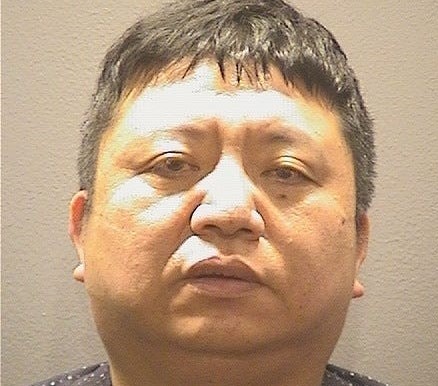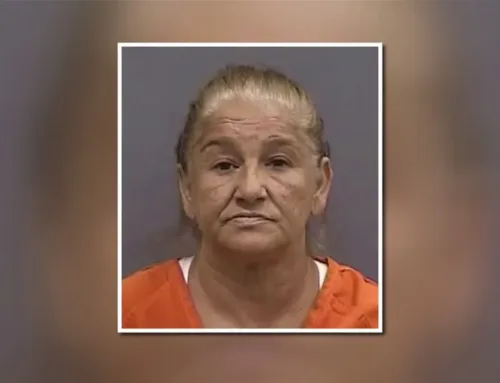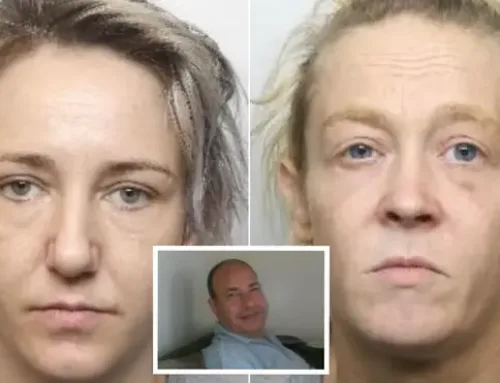May 2, 2021
-American Military News
A Hong Kong businessman who helped launder cartel drug money flew to Guam in October to pick up fake U.S. passports.
What he got instead was a private jet escort to Virginia flanked by federal agents.
Tao Liu, a venture capitalist who dressed up as Santa Claus for disadvantaged youth in New York, now awaits sentencing for trying to bribe a public official to get the passports and for laundering money for drug traffickers — including Mexico’s infamous Sinaloa Cartel.
Liu was part of an extensive network of Chinese nationals blamed for hiding the true origin of more than $30 million, mainly from cocaine sales, dating back to 2008.
“It’s startling to know the government is willing to come get you overseas,” said Liu’s attorney, Jonathan Simms. “I’ve never had someone put on a private jet. It made it convenient for them to interrogate him on the way over here.”
Liu, a father of four, discussed the case with agents on the plane ride and ultimately pleaded guilty in April to bribery for offering $150,000 per fake passport from someone he thought was a corrupt State Department official but who actually was an undercover DEA agent.
He was going to pay the bribe with wire transfers and cryptocurrency. Liu lived in Hong Kong but frequently traveled to the U.S. and Mexico. Other Chinese businessmen relocated to the United States, Belize, Guatemala and Mexico to set up elaborate networks to carry out several sophisticated money laundering schemes.
Wendy Woolcock, Special Agent in Charge for the DEA Special Operations Division, issued a statement in April after three of the defendants pleaded guilty, blaming the money laundering ring for routing “millions of dollars in drug proceeds back to the cartels, allowing the criminal organizations to further their activities, flooding our communities with dangerous drugs, causing devastating addictions and death.”
The network also is accused of hiding drug money in casinos, Guatemala front companies solely used to conceal the money, and through U.S. and foreign bank accounts, according to court records.
Members of the money-laundering network often would drive or fly bulk cash, typically in increments of $300,000 to $350,000, across America to avoid depositing too much in the L.A. area, according to attorneys familiar with the case.
They kept an emergency bag of cash hidden in Mexico in case they lost a shipment in the U.S. through a police sting or a double-crossing employee, because they didn’t want to owe the cartels.
The money launderers also used drug profits to buy American and Chinese goods, which they could send to cartels in Mexico, where those products are in demand.
Many court documents in the case remain sealed. But those available describe an elaborate black market peso scheme that used a series of steps to eventually send the drug profits back to Mexican cartels in their own currency.
Business transactions were discussed on the encrypted cell phone applications WhatsApp and WeChat, where one of the user names was “SUPERKING99.”
Simms said Liu was on the fringes of the money laundering network.
“I don’t think he understood the danger or the extent of the narcotic activity” or which cartels were involved, Simms said.
“He needed access to American cash and they needed renminbi,” Chinese currency known as RMB. So Liu went along with the scheme but felt safer not asking questions about who was calling the shots, his attorney said.
Prosecutors allege in court motions that Xizhi Li, 45, who lived in Mexico, played a more pivotal role in the crimes, with a direct connection to El Chapo, the notorious former head of the Sinaloa Cartel.
Li also “forged close ties” with drug organizations in Colombia and Guatemala, prosecutors allege in the indictment.
Li, who went by “Z,” maintains his innocence on charges of money laundering and conspiracy to traffic more than 5 kilograms of cocaine.
Amid the investigation, Li abandoned his L.A. restaurant to move to Guatemala. He opened a casino, which prosecutors argue was used to launder drug money in Guatemala City.
Investigators targeting a large drug ring in Memphis, Tennessee, stumbled onto a connection to the Sinaloa Cartel, which supplied the cocaine — and to Xizhi Li, who allegedly helped launder profits from its sale.
In 2018, investigators in Miami seized more than $617,000 from a bank account they claim belonged to Xizhi Li, using the name “Franco Ley Tan,” one of his 13 aliases, according to an affidavit by a DEA task force officer.
DEA agents in Memphis took control of the money as part of their investigation. Li never tried to get the money back, so a federal judge issued a default judgment last year to release the money to the government.
Prosecutors and defense attorney John Kiyonaga, who represents Li, declined to comment before trial.
While Li ran his restaurant in Los Angeles, he befriended California businessman Eric Yong Woo, 43, whom he allegedly lured into the conspiracy. Woo pleaded not guilty to money laundering charges, and both are scheduled to go on trial in August.
Attorney Robert Lee Jenkins Jr., who represents Woo, told The Courier Journal his client moved from China to America’s West Coast and ran a legitimate business importing and exporting goods from his homeland.
“Mr. Woo had no knowledge of any drug activities,” Jenkins said. “Mr. Woo was taken advantage of.”
Li, who owned a restaurant in Los Angeles, befriended Woo using an alias, Jenkins alleges. Li claimed his restaurant was headed for bankruptcy, so Woo agreed to let his friend set up a bank account in his name to protect business assets from creditors, the attorney said.
Prosecutors say the account was actually used to funnel drug money, and they have “overwhelming evidence” against Woo, according to their motion persuading a judge that Woo is a flight risk and should remain jailed until his trial.
They say they found a draft of an application for a passport with Woo’s photo but another name.
Prosecutors also cited concerns about Woo’s history of international travel to Mexico; Suriname in South America; China and elsewhere.
Woo had asked to stay with a parent in the Los Angeles area pending trial and offered to wear an ankle monitor. However, prosecutors argued that Woo’s parents are in their 70s, do not speak English and would be unable to stop their son from escaping.
He remains in jail in Warsaw, Virginia, until his trial.
Liu and codefendants Jiayu Chen, of Brooklyn, New York; and Jingyuan Li, of San Gabriel, California; admitted to conspiring to launder money during guilty pleas in April.
Each faces up to 20 years in a federal prison when they are sentenced in July in U.S. District Court in Alexandria, Virginia. Others are at large or awaiting trial.
Jingyuan Li, 49, admitted he organized bulk cash shipments of drug profits within the U.S. He also used a California-based seafood import-export business, Shuoyu USA Inc., to buy goods, which were shipped to China and Hong Kong for sale. The profits were sent to Mexico to repay the cartels.
Prosecutors say Jingyuan Li, who was born in China, often spent time in Mexico and San Gabriel, California, and laundered at least $3.8 million.
Agents haven’t been able to find the third defendant, Jianxing Chen, 40, who is charged with money laundering but remains a fugitive. He was born in China and has been living in Belize. Prosecutors allege in the indictment he traveled to New York, Los Angeles, Cancun, Guatemala City and elsewhere to help launder money and had a business interest in Li’s casino.
Simms called the scope of this network “massive, probably the biggest and most complex money laundering case I’ve seen.
“The layers go on and on.”




